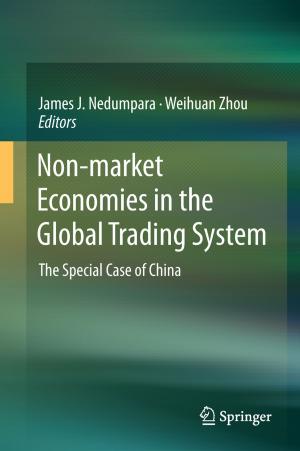Informing Choices for Meeting China’s Energy Challenges
Nonfiction, Science & Nature, Science, Physics, Energy, Technology, Power Resources| Author: | Zheng Li, Angelo Amorelli, Pei Liu | ISBN: | 9789811023538 |
| Publisher: | Springer Singapore | Publication: | August 18, 2016 |
| Imprint: | Springer | Language: | English |
| Author: | Zheng Li, Angelo Amorelli, Pei Liu |
| ISBN: | 9789811023538 |
| Publisher: | Springer Singapore |
| Publication: | August 18, 2016 |
| Imprint: | Springer |
| Language: | English |
This book describes the scale and complexity of China’s energy system, using Sankey diagrams to visualize the energy flows across the economy and categorizing the differences between provinces. China’s provinces extend over a vast area and are at different stages of economic development. Regional planning and inter-regional optimization will be essential for planning a future infrastructure that will allow China as a whole to optimize and avoid overcapacity and inefficiency.
In this context, it introduces a new energy systems modeling approach and demonstrates its application in the power sector. This power model can help optimize the overall design of the power system and reveal how different future investment choices, e.g. natural gas fired power, only emerge when details such as regional, seasonal and diurnal demand factors are considered. Lastly, it looks at options for mitigating carbon and the major role that renewables & natural gas could play, as well as carbon pricing.
This book describes the scale and complexity of China’s energy system, using Sankey diagrams to visualize the energy flows across the economy and categorizing the differences between provinces. China’s provinces extend over a vast area and are at different stages of economic development. Regional planning and inter-regional optimization will be essential for planning a future infrastructure that will allow China as a whole to optimize and avoid overcapacity and inefficiency.
In this context, it introduces a new energy systems modeling approach and demonstrates its application in the power sector. This power model can help optimize the overall design of the power system and reveal how different future investment choices, e.g. natural gas fired power, only emerge when details such as regional, seasonal and diurnal demand factors are considered. Lastly, it looks at options for mitigating carbon and the major role that renewables & natural gas could play, as well as carbon pricing.















